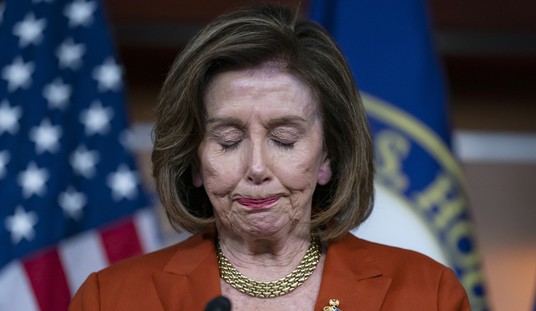One of pro-aborts’ favorite arguments against pro-life laws is that anti-abortion Republicans want to pass laws that will effectively criminalize ectopic pregnancies and miscarriages.
That’s not true, of course, and pro-lifers have pointed out again and again that elective abortions are not the same as miscarriages or abortions performed when the mother’s life would be at risk by carrying the pregnancy to term.
If anyone’s conflating abortion and miscarriage, it’s pro-aborts. Take a look at this New York Times opinion piece:

Why is anyone on this godforsaken planet even asking that question?
not really! pic.twitter.com/Q0w2FMjBUD
— T. Becket Adams (@BecketAdams) August 2, 2022
How is this real life?
"The line between abortion and pregnancy loss has always been blurry," write @GreerDonley and @jillwieberlens. "But over the past few decades, the anti-abortion movement has forged a cultural bright line between the two experiences." https://t.co/WORbcVDpaD
— New York Times Opinion (@nytopinion) August 2, 2022
“It does not damage" the abortion rights movement “to admit that some people become attached to their children in utero and that attachment has value,” @GreerDonley and @jillwieberlens argue in a Guest Essay. https://t.co/ByFAgBlFkf
— New York Times Opinion (@nytopinion) August 2, 2022
Greer Donley and Jill Wieber Lens write:
Pregnancy loss and abortion have more in common than many people realize. The physical experiences are often virtually identical. Early abortion with medication mimics the experience of miscarriage, and early miscarriage care often involves the same drugs or procedures used for an abortion. Later pregnancy losses and abortions, which are both rare, often involve the same procedures or induction of labor.
The stigma and isolation that many experience after both events is similar, many times revolving around a perceived failure at motherhood. The same groups — poor women and women of color — are more likely to experience both events. And though the emotional reaction to abortion and pregnancy loss can be very different, especially when a patient ends a wanted pregnancy, the grief felt can be quite intense.
…An abortion-rights movement that talks about the fetus and the woman together — as the anti-abortion movement has been doing for decades — has a better chance to win hearts and minds. It also opens the door for the movement to more fully embrace reproductive justice, a framework created by women of color that recognizes the right to avoid having children alongside the equally important rights to have children and parent them with dignity.Many people experience abortion, pregnancy loss and the birth of a living child in one lifetime. The post-Roe abortion rights narrative should embrace this reality. The abortion-rights movement needs allies, and the pregnancy loss community — which is also suffering greatly without abortion rights — could be a formidable one.
because one is a choice, and one is not?
where do i collect my prize? pic.twitter.com/Ck6Obg0Cr3
— T. Becket Adams (@BecketAdams) August 2, 2022
Such a disingenuous piece. The difference is 💯intentionality💯. It's embarrassing to act so obtuse. Fall down the stairs and have a miscarriage: Tragic. Insert forceps to crush baby's skull: Evil. @MZHemingway @kayleighmcenany pic.twitter.com/Qg3zBDcYPn
— Israel Heinz (@IsraelHeinz) August 2, 2022
The difference between intentional and unintentional death is quite clear, and it has been for some time now. And if we didn’t know any better, we might think that the writers of this piece were intentionally trying to cause confusion and harm.
Disgusting. Just disgusting all around.
This horrific piece in NYT that cruelly, illogically equates abortion and miscarriage also makes sweeping claims about race for which the authors provide no citation.
“Freudian Duplo.” –@charlescwcooke pic.twitter.com/PNemCN9n1p
— Ellen Carmichael 🌻 (@ellencarmichael) August 2, 2022
This is one of the most dishonest and manipulative articles you’ve published and considering the source, that’s saying a lot. What a way to make enemies.
— MyJennarocity (@MJennarocity) August 2, 2022
They’re certainly not making friends.
Why Do We Talk About Murder Differently From Cancer?
— T. Becket Adams (@BecketAdams) August 2, 2022
Is that the next New York Times opinion piece? Because it might as well be.
























Join the conversation as a VIP Member